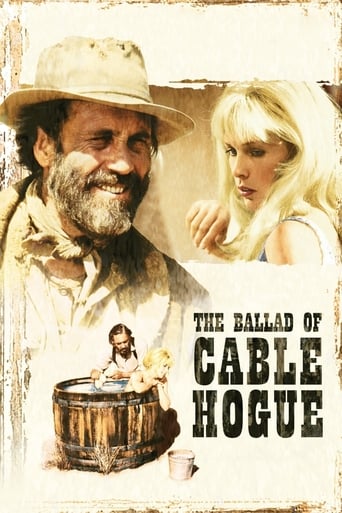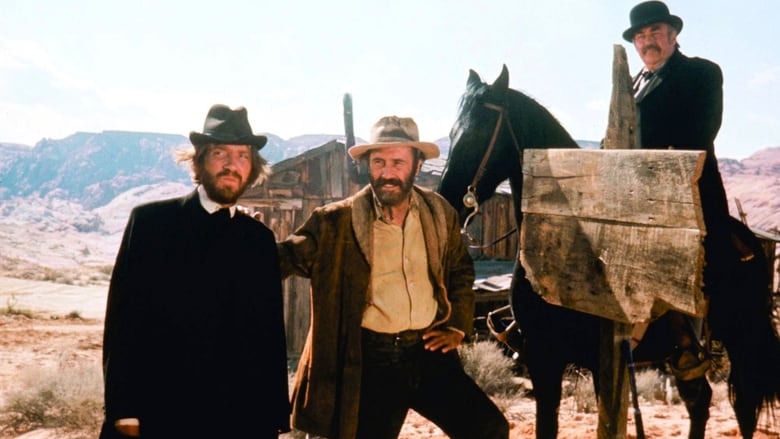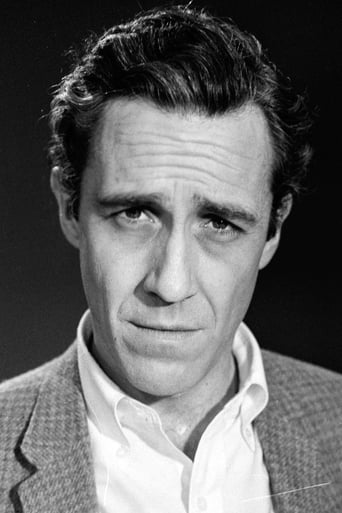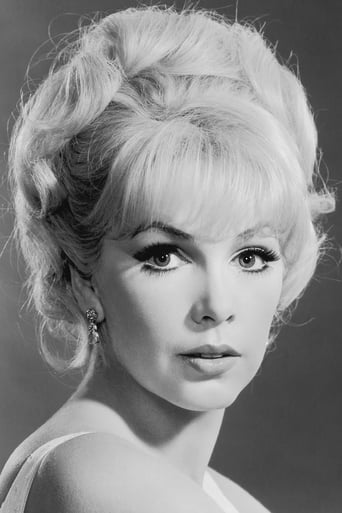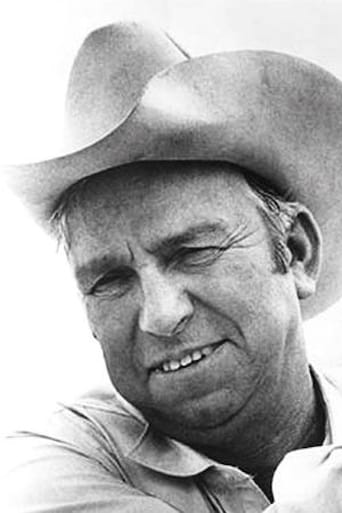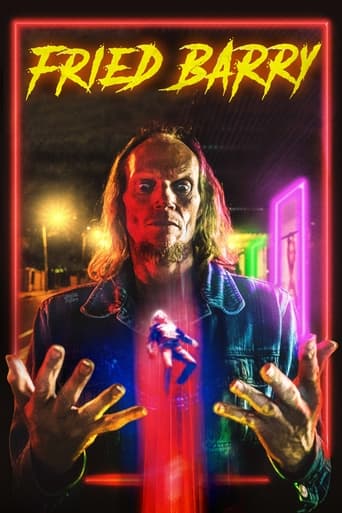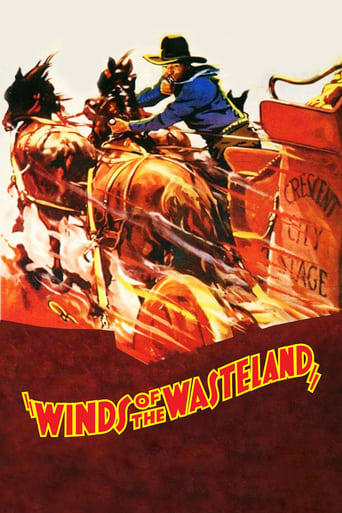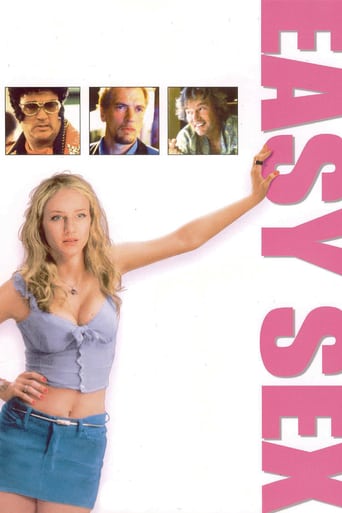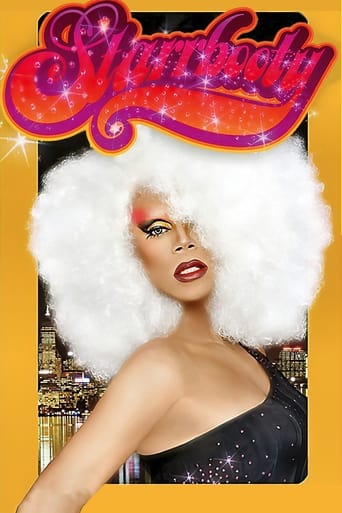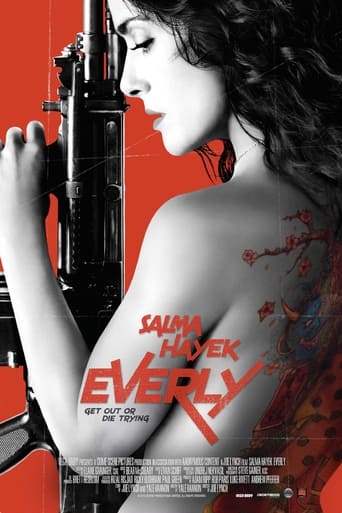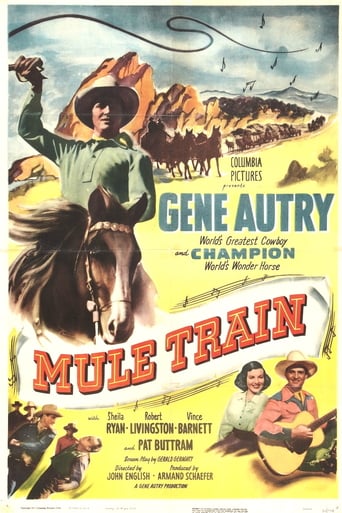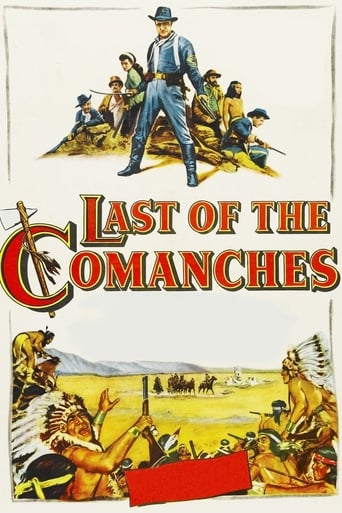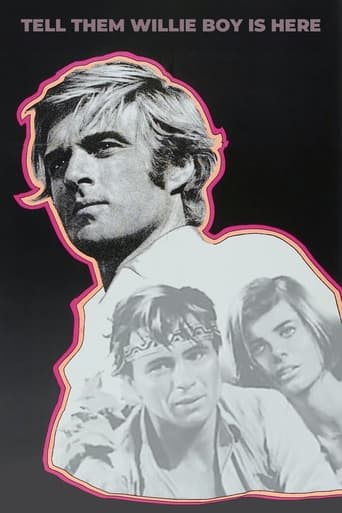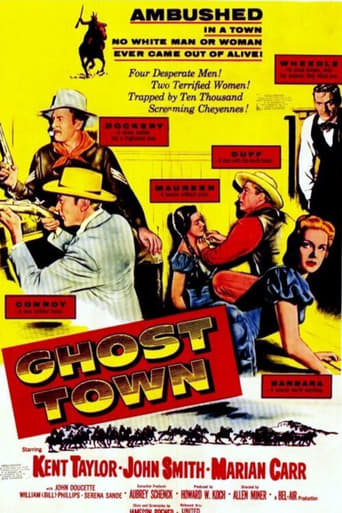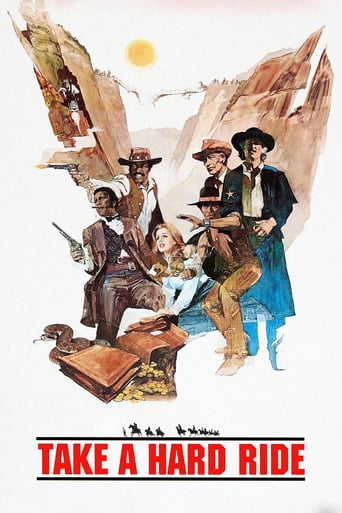The Ballad of Cable Hogue (1970)
Double-crossed and left without water in the desert, Cable Hogue is saved when he finds a spring. It is in just the right spot for a much needed rest stop on the local stagecoach line, and Hogue uses this to his advantage. He builds a house and makes money off the stagecoach passengers. Hildy, a prostitute from the nearest town, moves in with him. Hogue has everything going his way until the advent of the automobile ends the era of the stagecoach.
Watch Trailer
Cast


Similar titles
Reviews
In direct response to the controversy which erupted over the unprecedented violence and gritty realism of The Wild Bunch, Sam Peckinpah did what many of the greatest American filmmakers have done over the years. His next project would end up being almost intentionally counter to the previous film.The result was The Ballad of Cable Hogue, a small-scale, intimate tale that is equal parts a nostalgic look back to the Old West and a tribute to the kind of man capable of surviving and thriving in such an environment. Jason Robards is touching and firm as the title character, left for dead in the prologue but able to fight through his misfortunes and create his own oasis. Along the way, he encounters a most unusual and shifty man of the cloth and a prostitute with a heart of gold. Stella Stevens is really wonderful as Hildy, one of the best examples of this most ancient of Hollywood screenplay clichés. Her romance with Hogue is both sincere and sad as Peckinpah uses this as a template for how the romantic West quickly found its way into decline and obsolescence.Peckinpah may have gotten a lot of flack for The Wild Bunch but this film received almost just as much criticism, ironically for being almost exactly not what he had come to be known for. However, some forty years later, Peckinpah's true vision of men unable to conform to the regularities of society shines through. Gorgeous photography, solid acting, a beautiful score and themes of survival and memory point to this as one of the most brutal Western director's gentlest and personal triumphs.
I didn't even know this was a Sam Peckinpah movie when I watched it. It has been programmed regularly on Cable TV here in the UK, and I idly switched over to it one Sunday evening. Cowboy movies in 2012? You must be joking! However, I was sufficiently hooked to watch this guy left for dead in the desert. It looks like Jason Robards, so it has to have something going for it. He finds a muddy puddle in the desert. OK, a cliché about this guy building up a prosperous business from scratch. Well, not quite. The clichés never happen. Instead the dialogue is interesting, poetic, never predictable. The character of Cable Hogue has depth and empathy. David Warner hoves into view as a disreputable preacher, dressed in black and thin as a gutter. In the nearest town we meet the hooker, played beautifully by the delectable Stella Stevens. OK, there are elements of slapstick which never quite work, but you feel the movie has something beyond the conventional western. When I discovered it was by Peckinpah, I immediately thought - yes, this is the work of a great director. Not a full-blown symphony, perhaps a string quartet (though by all accounts it cost enough to make). It leaves you with a feeling of satisfaction, tinged with melancholy. That coyote at the end has a collar - perhaps a symbol of the taming of the wilderness.
Sam Peckinpah is mostly known for "The Wild Bunch", but his smaller pictures tend to be better, more personal."The Ballad of Cable Hogue", which Peckinpah regarded as both a personal favourite and the most autobiographical of his films, is a 1970 Western which stars Jason Robards as Cable Hogue, a bearded prospector who sets up a stagecoach station at a watering hole out in the desert. Traffic through these parts will be high, Hogue reckons, and so sooner or later Taggart and Bowen are likely to turn up as customers. Taggart and Bowen being the two men who abandoned Hogue to die out in a desert three years earlier. Hogue wants revenge. Taggart and Bowen, of course, do eventually show up.But the film is uninterested in violence, vengeance, and the genre's usual assortments of gun-play, money grubbing and double-crossing. Instead, Peckinpah turns the film into something more unconventional. Though it's primarily a comedy – Peckinpah's trademark slow-motion bloodbaths become fast, sped up comedy routines – the film is also very moody, lyrical and romantic. Peckinpah's more concerned with lingering on Robard's tired, bearded face, the loving glint in Cable's eyes and the charming way this rough and tumble mountain-man does his best to act gentlemanly and proper around a local hooker called Hildy. She's "the ladiest lady" his eyes have ever laid upon, you see.Contrasted with the chivalrous Hogue is a character called Joshua (brilliantly played by David Warner), a sex obsessed preacher who uses Christ and Bible as an excuse to get close to any woman he can. The film's dialogue is great – Robards, always a likable actor, has some endearing moments – but it's Warner who gets the best lines. Whenever he's on screen he's waxing poetic about female body parts, or finding some way to twist Biblical prose into pornography.Peckinpah was always a Romantic. His heroes are all misunderstood outcasts, wounded macho-idealists who flee hell only to end up in worse hell holes. Without hope or future his heroes are content with what little time and pleasures they have left, the latter often amounting to nothing more than some nickle, land, or a fine lady at their sides to help lick their wounds. These women tend to be hookers and whores, not because Peckinpah's a pervert or misogynist, but because, like Van Gogh, he and his heroes identify with the beaten and downtrodden.Peckinpah called "The Ballad of Cable Hogue" his most autobiographical film. There are no drugs or heavy boozers here (Peckinpah was a notorious alcoholic and addict), but Cable does echo Peckinpah's life in other ways. He abandons the towns and cities, moves off into the wilderness, finds some land for himself, becomes a ragged pauper king and then muses about his legacy before dying. "Was I a violent man or a kind man?" Hogue broods, "a killer or a lover?" Peckinpah, of course, grew up on ranches, was virtually kicked out of Hollywood, made a home in the scrublands of Mexico, had a temperament that bounced from violent king to kind, quiet artist, became worried about his films' portrayal of violence, then found himself resorting to dumb, impersonal action thrillers to keep his career alive. He sees the best and worst of himself in Houge.Regardless, "The Ballad of Cable Hogue" is Peckinpah's gentlest, most introspective film. Like "Two Mules For Sister Sarah", a western released the same year by Peckinpah's mentor, Don Siegel, it's also unashamedly offbeat and free-spirited. If the film treads wrong, it's in an overly literal climax, in which an automobile runs over Hogue, mechanisation and the "new", "civilized" world literally heralding the death of the cowboy. This tired cliché and banal observation is found in virtually every post "Liberty Valance" western.8/10 – Worth one viewing. Some more excellent, unconventional westerns from this period: "Bad Company", "The Beguiled", "Two Mules For Sister Sarah", "The Long Riders", "Pat Garrett and Billy the Kid", "The Life and Times of Judge Roy Bean", "Buffalo Bill and the Indians, or Sitting Bull's History Lesson", "The Shootist" etc.
Jason Robards gives one of the best performances of his career as Cable Hogue, an iconoclast, desert rat, and shrewd opportunist, who sees his chance to prosper and takes it when he stumbles across a mudhole in the desert and turns it into a profitable oasis.Robards gets great support from all around him, especially David Warner as a lecherous preacher that becomes a kind of sidekick to Hogue and Stella Stevens as the girl Cable lusts after, but can't quite hold on to.Entertaining, fun, sometimes hilarious, and sometimes quite poignant, The Ballad Of Cable Hogue further elaborates on the central themes in previous as well as subsequent Peckinpah westerns, of changing times in the west at the turn of the century. It's a character study, with the Hogue himself symbolizing the life and death of the old west.Peckinpah's favorite of his films, it appears (at least to me) he tried to replicate the feel of this three years later, in Pat Garrett & Billy The Kid, with mixed results.

